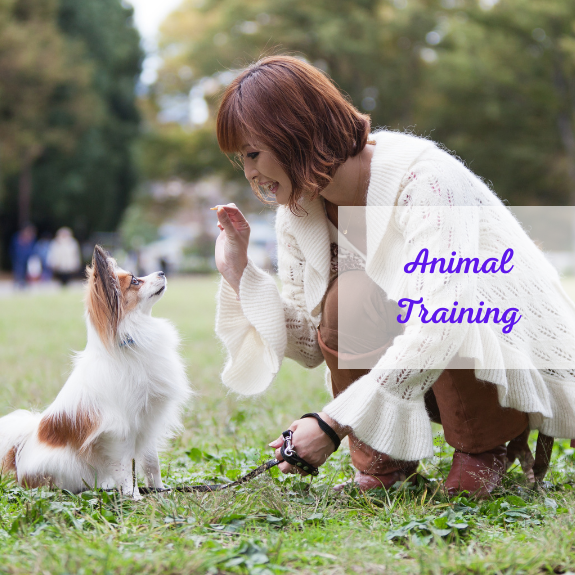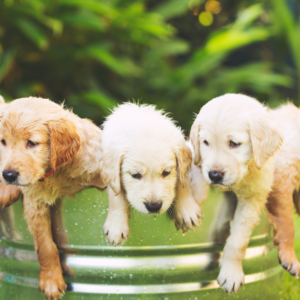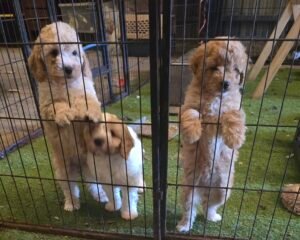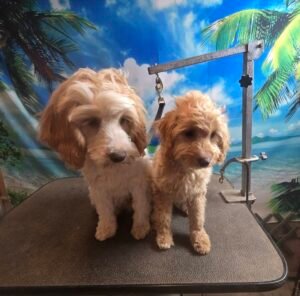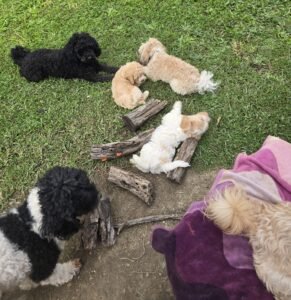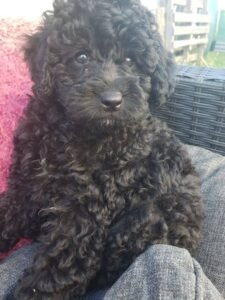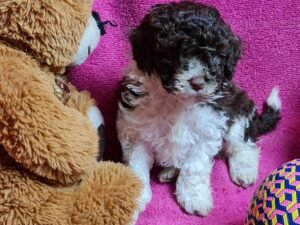It’s the first night at home and the cute little puppy is so small. How can you not let it sit on the lounge, snuggle up on the bed or eat from your dinner plate? How could you make it sit or stay outside, in a crate or in the laundry? It’s only going to be a small dog they don’t need training.
Dog obedience schools, dog trainers and groomers see hundreds of these dogs every year but only once they have become total rat-bags and exhibited many aggressive behaviors e.g. biting children or adults, fighting dogs or threatening smaller animals.
The domestic dog (Canis lupus familiaris) is a highly evolved social animal constantly looking for companionship. In the absence of this, they become disorientated, unpredictable, fearful and insecure. A dog’s most appropriate place in the human family is after the humans. Dogs instinctively chose the strongest person in the family as their guide. Like small children they thrive on consistent rules and routines.
Training should start as soon as you get your new puppy. Hopefully you have chosen a responsible breeder that has already started training your puppy. Puppies and dogs have very short attention spans therefore rewards or reprimands must be instantly after the behavior. If your dog runs away and you discipline him when he returns then he is learning not to return to you. The reproach was for his most immediate action. If you want him to return in the future you should praise his return.
Ignoring the bad behavior and praising the good is reward based training. The choice of reward depends on the dog. Some dogs “walk through fire” for a small piece of dried liver; others do almost anything for praise from their humans. Others love a squeaky toy only available at training times. The dog determines what is most rewarding to them not us.
Dog training is preformed during day to day interactions. Large and small puppies should be taught to walk on a lead, to sit and stay at feed time, and to be quiet and settled inside the house and car or when placed in a size appropriate crate. Crate training is an excellent way to achieve toilet training, accustoms dogs to confined spaces in the event of illness, accident or boarding. Staying off beds and lounges must be enforced early and consistently. Dogs do not understand “just this once”, once means always. They get confused and scared if the rules are inconsistent.
Feed time is an excellent time to train dogs. Many basic commands are reinforced at this time. Sit, stay, down, come, stand and wait can all be taught. Dogs that wait for food have impulse control and responding appropriately to the leader and guardian of their world. You are the provider of all good things, especially food and praise. Removing food enforces that food aggression is not allowed, important if your dog eats a dangerous food item, or gets a bone caught in its throat.
Teaching the come command, useful in a dangerous situation, starts at dinner time. Place the dog in a sit, a small distance from the food. Tell it to stay and place the food down. Say come and encourage the dog to move towards the food. When the dog performs the exercise correctly they get two rewards – food and your praise.
Dogs running away or out of the front door into the middle of traffic have never learnt boundaries. Even small dogs can be easily taught to wait for a signal to walk through the door, gates, garage doors or car doors. Asking for a sit and calm behavior before a door opens is the key.
Basic commands can be reinforced at grooming time. Place smaller dogs on an outside table covered with a non-slip mat. Smaller dogs need constant grooming and a young puppy must be taught to remain still while bushing and nail trimming. Still is a command that is excellent in this situation. Bush all over the puppy, including the tail. Holding the feet is excellent training for Poodles, Shih Tzu and Maltese who need feet trimming for long coat.
Expose your dog to as many strange situations as possible in the first 6 months to set down many good memories they can draw on. After vaccinating take them out and introduce them to the big wide world of adults and kids, cars and trucks, other dogs (small and large), cats, birds, the vets, the grooming salon and any other situation they need to cope with.
Puppies take their cues from how YOU react to situations. If you are calm and in control, talking in a normal, assertive, reassuring voice your dog knows it’s all OK Owners who get upset, pick up the dog and retreat from situation are saying “its OK to be scared, as I am scared too” Dogs don’t listen to the words but infer information from tone and body language.


Kareema
Healing Energy Animals
Kareema is the owners of Healing Energy Animals where devil dogs, horrible horses and crazy cats are turned into perfect pets using Relationship Animal Training and over 50 years of experience training a wide variety of animals.
Healing Energy Animals provides owners and pet professionals assistance with with common pet behavior training, feeding and grooming issues such as barking, escaping, scratching, aggression and fleas. Kareema consults and writes widely on a range of pet care issues for owners and also assists pet care professionals in setting up and growing their businesses by the provision of customer handling advice, sales and marketing strategies and up to date product information that allows for the differentiation of their pet care business from their competitors.
Healing Energy Animals is an Australian business but operates worldwide via the provision of virtual services.
